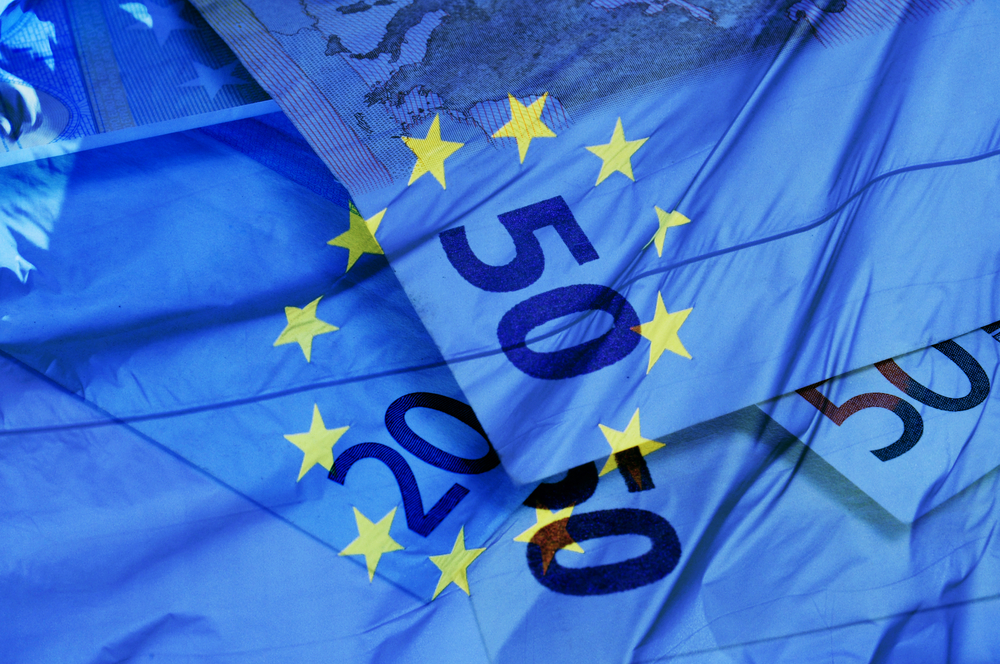
Bill Blain has a piece on CapX on the issue of European debt, which fits into the so called “Next Generation EU” plan to finance recovery after the pandemic. I am glad a piece like this was published, insofar as I think the fact that the EU is issuing debt is itself a significant change from the past and should better be appreciated. It is an interesting piece, and Blain is correct in pointing out that whatever steps we take towards an “ever closer union”, including mutualization of debt, will likely raise the level of conflict between member states:
The mutualisation of Europe’s debt is therefore a political objective for the Eurocrats in Bruxelles. But mutualisation and Brussels control will raise the level of dissent.
Still, I don’t believe that “Next Generation EU” was much of a political objective for the Eurocrats in Bruxelles. If somebody knows about the difficulties of keeping Europe together, and dreads the very notion of conflicts, it is actually the Commission’s officers. What happened in this case was much more complex: great pressure from Southern European states, the fear of Northern and more frugal states, and particularly Germany, that unless the Southern member States were kept afloat financially, the very survival of the EU was at stake. The common understanding is that exceptional circumstances (like the pandemic) allow for exceptional changes (which everybody would prefer to avoid). And, of course, there seems a dominant ideology in the EU and the US, that sees public spending as the solution to any and all problems.
In this sense, the profligate spending by the US administration is setting the tone of the debate elsewhere and shaping what is bound to be, for the next few years, a conviction of establishments everywhere: that is, that massive government intervention does not necessarily need to be anti-cyclical, but could and should shape the recovery by meddling with the allocation of factors of production. “Green” bonds are the new game in town, and Eurocrats do not look any different than policy makers in London or Washington, alas.
It would be good to have, at least in some capitals, somebody who has a more long term vision of our current predicament. To the best of my understanding, the only powerful voice who took a stance different from most is Wolfgang Schäuble. I shall confess I am kind of a fan of Schäuble, who has been one of the few consistent voices for sanity in the EU over the years and whose political courage I admire. See this recent article on Project Syndicate.
There, Schäuble writes
The prospect of recovery makes it all the more urgent to have a firm vision of how the burden of public debt can be reduced once the coronavirus has been vanquished. Otherwise, COVID-19 could be followed by a “debt pandemic,” with dire economic consequences for Europe. Countries like the US and China are already ahead of the demographically aging Europe in terms of productivity and workload. This competitive disadvantage would widen if EU countries were to jeopardize their financial flexibility through excessive debt.
And also
For this reason, every country must work on itself and strive to maintain budgetary discipline. Financial solidarity is, and will remain, a key condition for sustainable investments in education, research, and innovation, without which our prosperity cannot be safeguarded. But one thing is clear: Left to their own devices, members of a confederation of states like the eurozone are too easily tempted to incur debts at the expense of the community. Balanced budgets are almost unattainable in high-debt countries without external pressure.
It seems to me it is not the first time Schäuble is right, and it will not be the first time most of his colleagues refuse to admit it.

READER COMMENTS
Alan Goldhammer
Apr 23 2021 at 11:45am
Maybe they should get the same accountants who do the books for Real Madrid and FC Barcelona. For some reason these two teams never seem to go bankrupt despite spending money they don’t have.
Thomas Lee Hutcheson
Apr 24 2021 at 7:53am
I think a lot of this goes back to the ECB’s targeting too low an inflation rate to permit countries to adjust to the 2008 financial crisis. [This of course goes back to the mistake of creating the Euro and a single central bank for the zone.] Bad monetary policy shifted the adjustment burden to fiscal policy which is constrained at the country level and so the burden is further shifted to the EU level.
It is a separate and appropriately fiscal (and potentially conflict generating) question if taxpayers of richer countries wish to assist poorer countries cope with the pandemic.
Gianis Vardis
Apr 26 2021 at 9:07am
When was he exactly right? He has been repeating the same doomsday talk and has been wildly off in all his prognoses for years.
The entire PS article is full of blissful ignorance (e.g. how Southern European countries are not abiding by the SGP and running debt/GDP ratios higher than permitted etc. while ignoring that Germany has been running surpluses above what is permitted in the SGP for the last decade or so). Mr. Schäuble should know better than fear mongering like that.
Comments are closed.